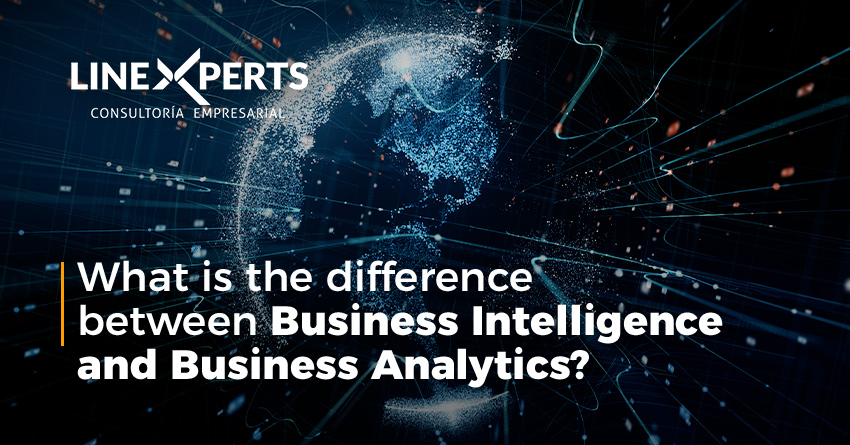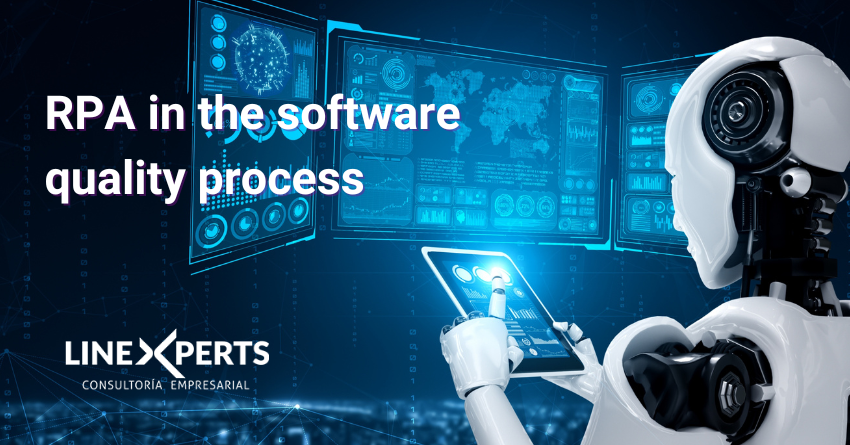What is the difference between Business Intelligence and Business Analytics?
Nowadays, and thanks to the high degree of job specialization, we have very specific areas of work, which allows efficiency and results of very high level, however, given the wide range of tools and areas of knowledge it is common that certain terms can blur each other, giving rise to confusion and confusing interpretations on certain topics.
Among these we have two terms that are extremely popular nowadays, which can be easily confused due to their similarities. These are Business Intelligence and Business Analytics.
That is why today we want to comment on what aspects are covered by each of these topics and what elements make them different from each other. A relevant aspect if you are considering implementing them within your company in order to minimize costs and increase profits and revenues, as well as to find opportunities for growth and business expansion.

Business Intelligence (BI)
According to DMBOK version 2, in general, Business Intelligence is part of one of the ten areas of data governance and management in which, based on collected data, it seeks to evaluate and identify the evolution and behavioral patterns of multiple aspects of the business being analyzed. The purpose of this practice is to be able to make more accurate and adjusted decisions by applying recorded facts and behavioral patterns.
We also found that Business Intelligence "is a set of concepts, methods, and processes for improving decision making by using a variety of data types and sources that can impact the business and applying experiences and assumptions to deliver an accurate perspective of business dynamics" (Backet 2011). Taken from Dictionary of Data Management 2nd Edition.
It should be noted that Business Intelligence projects require proper definition, structuring, planning, execution capacity, senior management sponsorship and a deep knowledge of the business, furthermore that the decisions made from its implementation lead the organization on the right path.
To develop Business Intelligence projects, multiple tools can be used, among the most important are those that allow: extract, transform, load and visualize data. Business Intelligence projects are based on descriptive analytics, analyzing historical facts to make decisions based on them.
Business Analytics (BA)
Business Analytics also allows through data to build models to discover behavioral patterns, relate variables and observe probable outcomes, change rules, model scenarios and decisions, refine models, compare results, make decisions and ultimately learn. Fact-based decisions, supported by models to anticipate possible business behaviors and circumstances. Sometimes it will be necessary to work with large volumes of structured or unstructured information, for which it will be necessary to implement BIG DATA, so that they can be loaded, manipulated, analyzed, decisions made and learned in a matter of microseconds. Something unthinkable for human beings.

If you want to go deeper into the topic of Big Data, what it is, how it works and what it is for, we invite you to read our article about it in: Big data: The importance of big data in the company.
Business Analytics uses statistical tools and calculations to identify patterns and possible trends. Unlike dashboards generated for Business Intelligence that show past behavior, Business Analytics presents different scenarios and possible future results.
According to organizational analytics maturity models, the process starts with Business Intelligence projects that extract, transform, load and present data in dashboards to help decision making based on past experience and assumptions of future behavior. After this step towards maturity, organizations continue to move towards Business Analytics projects that are equally data-driven, but include diverse models and scenarios to anticipate events and even learn and correct the way forward. And if the volumes of information require it, we can continue with Big Data, which will allow us to be even more precise in decision making and organizational learning.
If reading this post you have considered that the implementation of any of these types of projects can help your company to fulfill its strategic plans, contact the Linexperts team through: Contact Linexperts.






